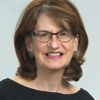Health officials in King County are launching a new surveillance program to better track the spread of COVID-19 – and they’re asking residents to volunteer their noses for the effort.
Self-test kits with nasal swabs will be delivered to participants, who will send the samples back for analysis. The effort’s main goal is to get a better handle on the prevalence, severity and distribution of infection and gauge the impact of measures like social distancing and school closures, said Dr. Jeff Duchin, Health Officer for Public Health – Seattle & King County.
“The basic question that it’s going to be answering for us is what’s below the tip of the iceberg,” he said.
Clinical testing so far has mainly identified people sick enough to seek medical care, but many more are harboring the virus and potentially spreading it to others, even though they might have no symptoms themselves, Duchin said.
Officials hope to learn more about infection levels among different age groups and geographic areas. The data will also be valuable for modelers trying to forecast how the pandemic is likely to progress.
“We don’t know how important school-age children are, for example, in transmitting the disease and how likely they are to become infected compared to adults,” Duchin said.
People who test positive for COVID-19 will be notified. But Duchin stressed the program is not meant to take the place of medical care and evaluation for people who are sick. They are still advised to consult their health-care providers to discuss symptoms and request diagnostic testing.
Even people who test negative through the surveillance program should continue social distancing. “We know there are so many opportunities for transmission,” Duchin said. “We need everybody to stay home and avoid nonessential interactions with other people.”
The program will initially be limited to about 300 tests per day, so not everybody who wants to participate will be selected. Volunteers will apply and fill out an online questionnaire at scanpublichealth.org and researchers will decide who to include in order to get a representative sample of the county’s population. People with and without symptoms will be included.
Called SCAN, for the greater Seattle Area Coronavirus Assessment Network, the project is based on the work of the Seattle Flu Study. Beginning in 2018, the flu study pioneered the use of volunteers and self-administered tests to track community spread of influenza and respiratory viruses. When the new coronavirus flared, flu study researchers quickly developed a test for the pathogen and began finding positive cases among nasal swabs they’d already collected.
But the team ran into regulatory hurdles. Though it was certified for research testing, it was not certified as a clinical laboratory. The New York Times reported state regulators, enforcing federal rules, shut down the lab’s coronavirus testing March 9 – a time when federally sanctioned test kits were in short supply.
The SCAN project’s self-swab system has now been approved by the Washington Department of Health for emergency COVID-19 testing, and the lab where the swabs will be processed has been federally certified, said University of Washington geneticist Jay Shendure, lead principal investigator for the Seattle Flu Study.
Duchin said it was regrettable more testing wasn’t available sooner, but that the hurdles faced by the Seattle Flu Study were only part of a bigger problem. “There were too many delays and roadblocks, many of them regulatory and administrative and logistical, that really held us back from understanding this disease and how it’s spreading and (from) taking earlier control actions.”
Now, health officials are struggling to figure out whether the many restrictions imposed to control the disease – from shutting down bars and restaurants, to closing schools – are really working. It’s only been about two weeks since social distancing measures were implemented, Duchin pointed out. People who were newly infected then are just beginning to get so sick they need hospitalization. “Really you’re two weeks behind, when you take an action, in understanding that action.”
The picture is also muddled by the fact testing has ramped up significantly, so more and more cases are being detected.
Experts at the Institute for Disease Modeling in Bellevue are trying to parse out the various factors. “We’re hoping for some results in the next week to give us at least a first, rough look at how the epidemic curve might be changing in response to the measures that we have put in place,” Duchin said. Data from the new surveillance program will help.
Amazon Care, a medical system for Amazon employees in the Seattle area, will provide infrastructure and logistics for test-kit delivery, along with other partners. A description of the way samples were handled for the Seattle Flu Study outlines multiple layers of protective packaging, including a sealed tube for the swab, a specimen bag and a prepaid shipping box.
SCAN will also include analysis of about 100 specimens a day left over from tests conducted on patients being treated for other respiratory infections in local hospitals. The samples will be deidentified, which means the patient’s name is linked to the specimen, but the researchers aren’t allowed to see it. Under state law, these patients cannot be notified if they test positive for the virus, because they did not consent to COVID-19 testing when the samples were collected.
The Seattle Flu Study, developed by the Brotman Baty Institute in Seattle, is funded with $20 million from Microsoft co-founder Bill Gates’ private office, and some of that money is being redirected for the SCAN project.
The Bill & Melinda Gates Foundation is also pursuing the use of self-administered test kits for large-scale diagnosis of COVID-19. A Q & A on the foundation’s website says studies are underway to assure the kits’ simple nasal swabs will provide reliable results and to develop web-based systems so people could apply for and order the kits.
